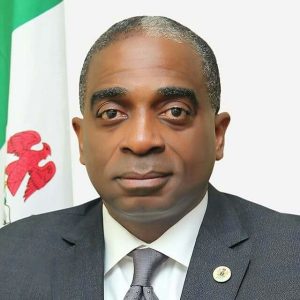
Photo Caption: (L to R) Mr Oseni Sakiru, representing the Program Manager, Ogun State Rural Water Supply and Sanitation Agency; Mrs Adedotun Ogunleye, Zonal Education Officer, Ado Odo Ota, representing the Ogun State Honorable Commissioner for Education, Science and Technology; Victoria Uwadoka, Corporate Communications and Public Affairs Manager, Nestlé Nigeria PLC; Rev. Dr Clement Ogunbisi, Baale of Ketu Adie Owie community, Ado Odo Ota, Ogun State; and Isiaka Aderohunmu, representing the Executive Chairman, Ogun State Universal Basic Education Board
Olasunkanmi Oduntan –
In a significant community development initiative, Nestlé Nigeria PLC has inaugurated new water and sanitation facilities at LG Primary School, Adie Owe, in Ado-Odo-Ota Local Government Area of Ogun State. This project will benefit over 500 students, educators, and families in the surrounding community, marking a vital step toward improving health and hygiene standards in the area.
The LG Primary School is a participant in Nestlé for Healthier Kids (N4HK), a comprehensive nutrition and health education program that focuses on four key areas: Healthy Nutrition, Healthy Hydration, Physical Activity, and Hygiene. The introduction of these facilities is a testament to Nestlé’s commitment to enhancing the educational environment through improved health resources.
Recognizing hygiene as an essential aspect of the N4HK initiative, Nestlé has addressed the critical challenge of maintaining hygiene practices without adequate water and sanitation facilities. This investment demonstrates the company’s dedication to promoting health education, thereby fostering thriving communities and improving overall quality of life.
At the inauguration ceremony, Victoria Uwadoka, Nestlé Nigeria’s Corporate Communications and Public Affairs Manager, emphasized the importance of these facilities. She stated, “Maintaining hygiene standards is extremely challenging in the absence of basic water and sanitation services. Our goal is to ensure that every N4HK beneficiary school has access to these vital resources.”
Uwadoka also highlighted that Nestlé has completed and commissioned similar facilities in ten schools across Ogun State, benefiting approximately 4,000 learners and educators. This initiative aligns with the Sustainable Development Goal 6 (SDG-6), which focuses on ensuring availability and sustainable management of water and sanitation for all.
The event was also attended by Prof. Abayomi Arigbabu, Commissioner for Education, Science and Technology, who commended Nestlé’s partnership with the Ogun State Government. Represented by Zonal Education Officer Mrs. Adedotun Ogunleye, he noted the importance of providing a conducive environment for education through such collaborative efforts.
Darasinmi Agunbiade, a fifth-grade student, expressed her excitement about the new facilities, saying, “I am very happy that we no longer have to endure long treks for water. Having separate facilities for girls and boys makes it easier for us to practice what we learn about hygiene in class.”
Dr. Femi Majekodunmi, Chairperson of the Ogun State Universal Basic Education Board (SUBEB), reiterated the significance of Nestlé’s contributions to educational development. He acknowledged the positive impact of water and sanitation facilities on the morale of both learners and teachers, enabling a better learning environment.
Earlier this year, Nestlé Nigeria also handed over a Water and Sanitation Facility at Wesley School 2 in Sagamu, bringing the total number of facilities established across Nigeria to 20. This effort underscores the company’s ongoing commitment to enhancing public health and education.
The lack of adequate water and sanitation services presents severe health risks and hampers social and economic progress. Addressing these issues is crucial, especially considering that many children face water, sanitation, and hygiene-related illnesses that contribute to school absenteeism and malnutrition.
In line with the United Nations Sustainable Development Goals, ensuring universal access to safe and affordable drinking water and sanitation is imperative. With an estimated 70 million Nigerians lacking access to safe drinking water and 114 million without basic sanitation, Nestlé’s initiative plays a crucial role in addressing these pressing challenges and upholding the fundamental human rights of communities.








